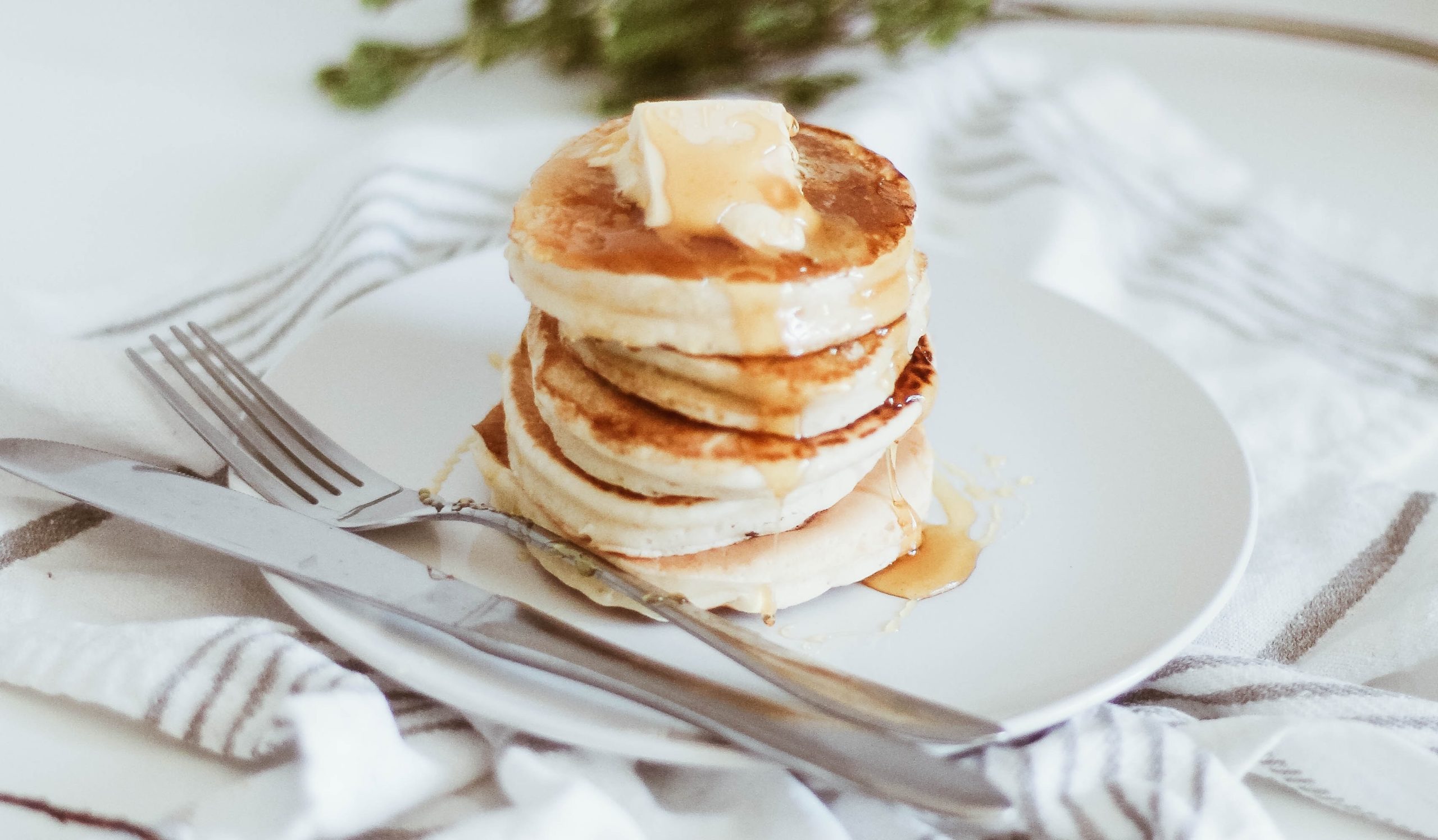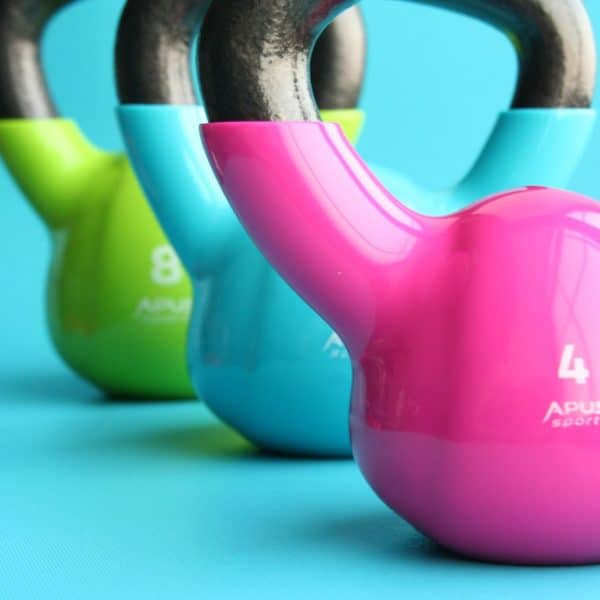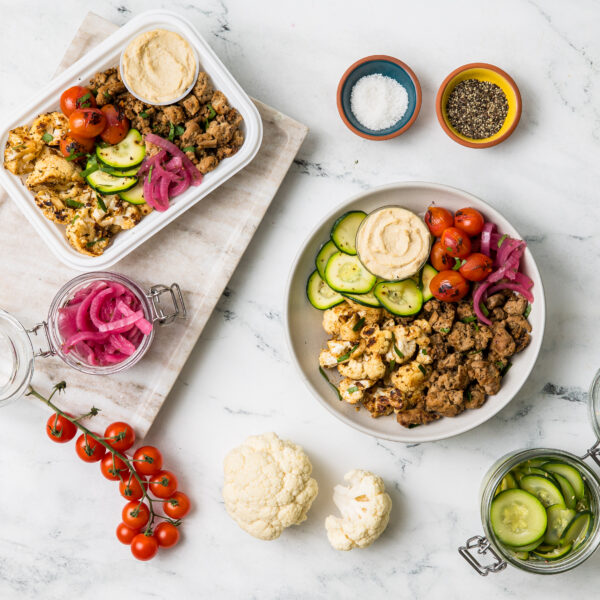We’ve talked about ghee a lot on the blog lately, with everything from how to use it in your food to whether or not it’s dairy-free. We even outlined the ways ghee is different from clarified butter. But what about ghee versus actual butter: is it easier to digest? We’re breaking down what ghee is, whether or not it’s healthy, and how it may be easier to digest than butter.
What is Ghee?
Ghee is essentially butter that has had its water and milk solids removed. It’s typically made by heating butter on the stovetop until the liquid evaporates and the milk solids settle at the bottom, turning golden or dark brown. The ghee remains on top and the milk solids can be strained out before transferring the ghee to glass jars. It’s quite easy to make at home using grass-fed butter.
While ghee and butter share many of the same properties, the removal of the water and milk solids means that its smoke point is 485 degrees Fahrenheit compared to butter at 350 degrees Fahrenheit.
This makes it much more versatile and a great choice for higher heat cooking. Ghee and butter also have a different flavor profile. While butter is a bit sweeter, ghee has a nutty and rich flavor. Since ghee doesn’t have any water remaining in the final product, it is shelf-stable and can be kept out on the counter for extended periods.
Does Ghee Have Health Benefits?
While this depends on who you ask, we believe the answer is yes!
Here at Snap Kitchen, we consider ghee a healthy fat and use it in many of our dishes. It contains a lot of the same nutrients as butter, which – though previously maligned as being unhealthy – has been vindicated by most progressive health experts.
Like butter, it contains vitamins A, E, and K, as well as both saturated and monounsaturated fat. It also has butyric acid and other short-chain fatty acids, which have been shown in preliminary research to benefit gut health and reduce inflammation! Like butter, ghee contains conjugated linoleic acid (CLA), a fat that may help with fat loss, may be anti-inflammatory, and may benefit heart health.
Since ghee is primarily made up of saturated fat, it’s more stable and less easily oxidized during cooking, making it a superior choice to almost all vegetable oils. (If you’re worried about saturated fat’s supposed link to heart disease, head here for more on the diet-heart myth.)
Opponents of ghee say that since ghee is produced at high heat, the cholesterol it contains may become oxidized. As we’ve talked about recently in our post about olive oil, oxidation within the body is linked to an increased risk for a variety of chronic diseases, including heart disease. But honestly, more research needs to be done in this area before a definitive conclusion can be made.
Is Ghee Dairy-Free?
The main differences between ghee and butter are a) the high smoke point and b) the fact that ghee is free of casein and lactose. This is the natural sugar found in dairy that may cause digestive issues for some people. If you’re sensitive to dairy, ghee is a great option for you!
BUT (and that’s a big ‘but’), it is lactose-free. When it comes to dairy, lactose is the source of the majority of people’s digestive issues. The lactose is removed during the ghee cooking process when all milk solids (including lactose!) sink to the bottom of the pot. Depending on your ghee home-cooking process or the brand that you’re choosing, there may still be trace amounts of milk solids in the final product. Given that, if you have a dairy sensitivity, you’ll have to do some experimentation to see if ghee works for you.
Why Is Ghee Easier To Digest?
We’ve hinted at this already, but since ghee has the milk solids removed, it’s typically easier to digest when compared to butter. Ghee is essentially concentrated fat since you cook off the water and milk solids that give butter its creamy texture.
Because butter still contains milk solids, it includes small amounts of lactose. As we’ve discussed, ghee is almost completely lactose-free. If you’re someone who is lactose intolerant, or if you find butter upsets your stomach, ghee might be a better option for you. Having said that, butter contains very small amounts of lactose, so many people don’t have an issue with it. Do a little experimentation to see if ghee or butter works better for you.
Ghee may still contain trace amounts of milk solids (depending on the brand), so it absolutely won’t work for you if you have a milk allergy or a more severe reaction to milk products. And of course, if you avoid animal products, you’ll still need to choose a different option, like extra virgin olive oil, coconut oil, or avocado oil.





Leave a Reply
No Comments